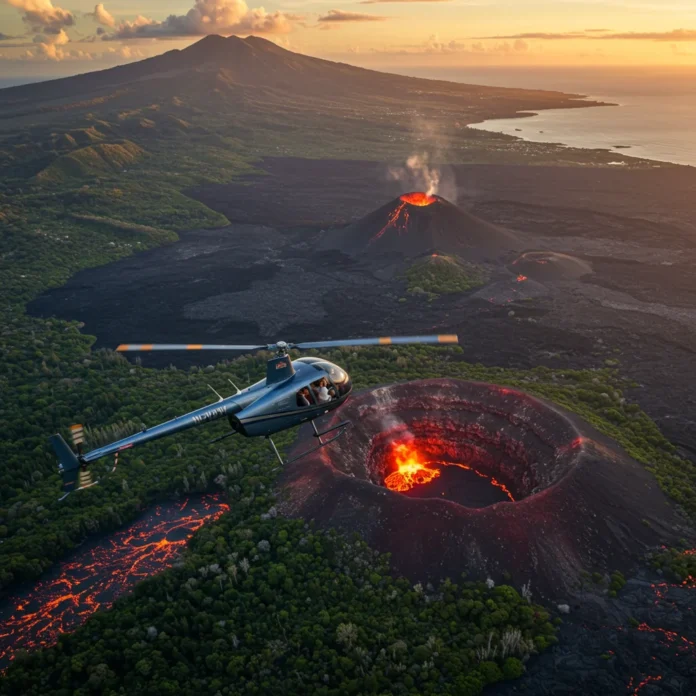Introduction to Big Island Helicopter Volcano Landing Tours
A helicopter volcano landing tour on Hawaii’s Big Island offers a rare chance to witness one of nature’s most powerful forces from an extraordinary vantage point. The sensation of lifting off, the rush of wind, and the panoramic views of lush rainforests and stark lava fields create an experience that is both exhilarating and humbling. These tours allow us to access remote volcanic sites that are otherwise unreachable, providing an up-close look at the island’s ever-changing landscape.
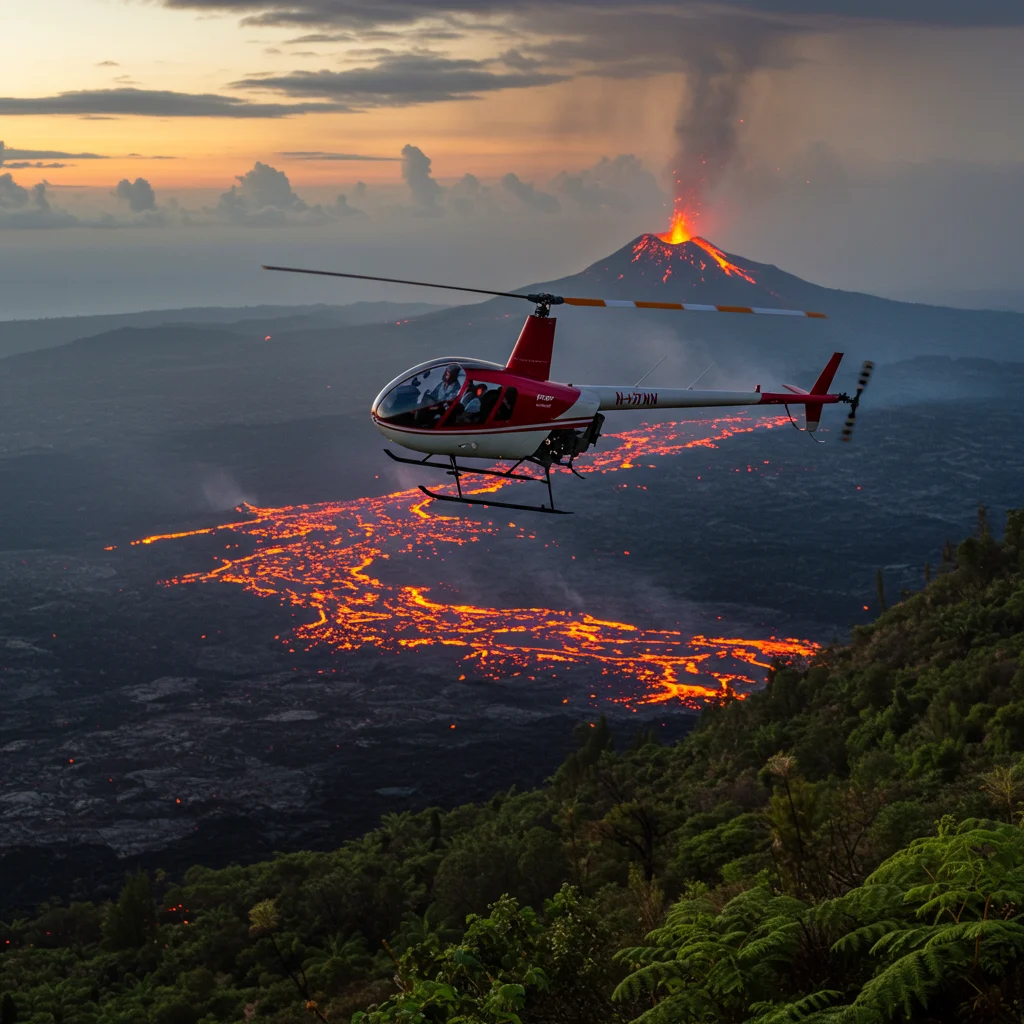
With the unique opportunity to actually land on volcanic terrain, these tours stand out as a must-do adventure for visitors seeking a deeper understanding of Hawaii’s geological marvels.
Why Choose a Helicopter Volcano Landing Tour?
Choosing a helicopter volcano landing tour elevates the traditional sightseeing experience by offering perspectives that ground tours simply cannot match. From above, we can truly appreciate the scale and beauty of volcanic craters, flowing lava (when present), and the dramatic contrast between old and new land.
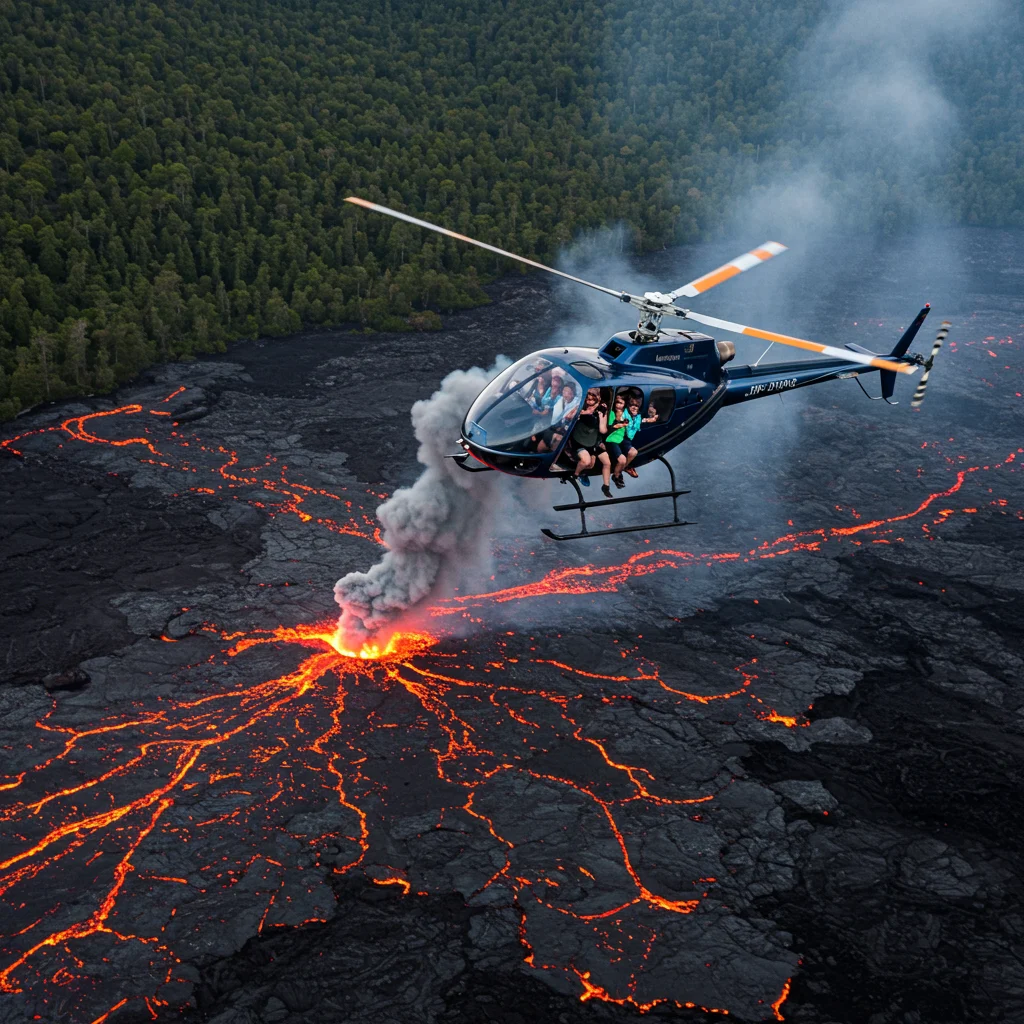
Unlike standard flyovers, landing tours allow us to set foot on raw volcanic ground, breathing in the warmth and mineral-rich air that rises from the earth itself. The thrill of hovering above an active volcano, followed by the gentle descent onto its surface, invites a sense of awe and respect for the forces shaping Hawaii.
What Makes the Big Island Unique for Volcano Tours?
The Big Island of Hawaii is renowned for its active volcanoes, particularly Kīlauea and Mauna Loa, which have shaped the island’s geography and culture for centuries. Nowhere else in the Hawaiian archipelago offers such frequent volcanic activity and accessible landing sites.

This island’s vast landscapes range from lush tropical forests to barren lava flows, offering a striking backdrop for helicopter tours. The diversity of volcanic features, including craters, calderas, and steam vents, ensures each flight reveals something truly unique.
For those interested in a broader excursion that includes volcanoes and waterfalls, our in-depth look at Big Island Wonders: Volcanoes, Waterfalls & Hawaiian History can help you plan a more comprehensive itinerary.
Overview of the Tour Experience
Booking a Big Island helicopter volcano landing tour promises a seamless blend of excitement, education, and comfort. The journey begins with a warm welcome at the heliport, followed by a safety briefing before boarding state-of-the-art helicopters.
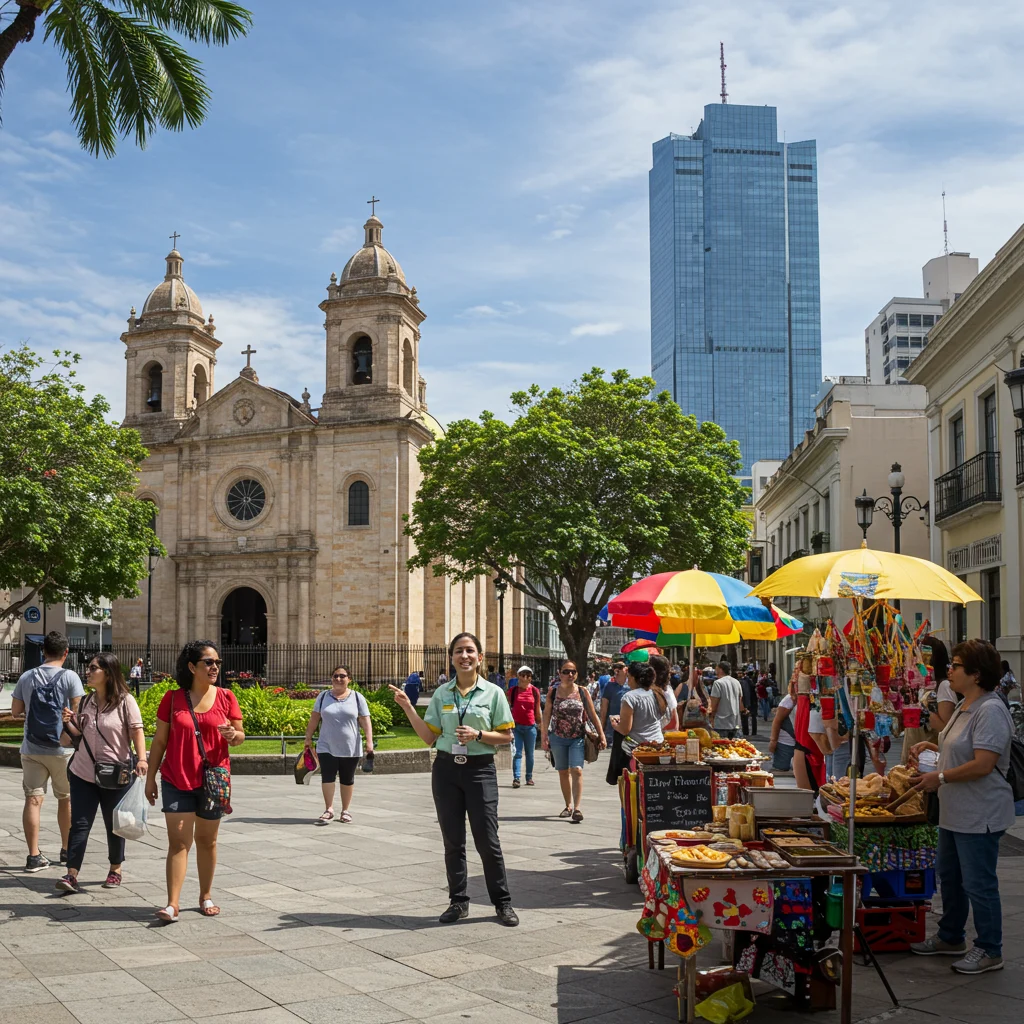
As we ascend, the landscape unfolds beneath us—green valleys, black lava fields, and the endless Pacific stretching toward the horizon. The highlight comes when the helicopter gently touches down on a secure volcanic site, allowing us to walk, photograph, and learn from expert guides.
How Does a Volcano Landing Tour Work?
After check-in, guests receive a safety orientation and are assigned seats based on weight distribution and group preferences. Once on board, the helicopter lifts off smoothly, heading toward the island’s most active volcanic zones.
The pilot navigates over dramatic landscapes, providing real-time commentary through headsets. Upon reaching the designated landing site, the helicopter sets down on a solid, previously surveyed volcanic area, ensuring safety and minimal environmental impact.
What to Expect During the Flight
During the flight, we are treated to sweeping views of volcanic craters, lush forests, and the winding coastline. The ride is smooth, with large windows offering unobstructed views in every direction. The hum of the rotors is balanced by the pilot’s informative narration, sharing insights about geology, history, and local legends.
Many guests describe the experience as both thrilling and tranquil, with the sensation of flying adding a unique dimension to the adventure.
What Happens During the Volcano Landing?
Upon landing, we disembark onto solidified lava, often still warm from ongoing geothermal activity. The air is tinged with the scent of minerals and, at times, faint sulfur carried by the breeze. Guides lead us on a short walk, pointing out geological features, recent lava flows, and native flora that has begun to reclaim the landscape.
This part of the tour is designed to be both educational and safe, with clear boundaries and expert supervision throughout.
Types of Helicopter Volcano Tours on the Big Island
There are several types of helicopter volcano tours available, each tailored to different preferences and group sizes. Whether seeking privacy, luxury, or a social atmosphere, there is an option to suit every traveler.
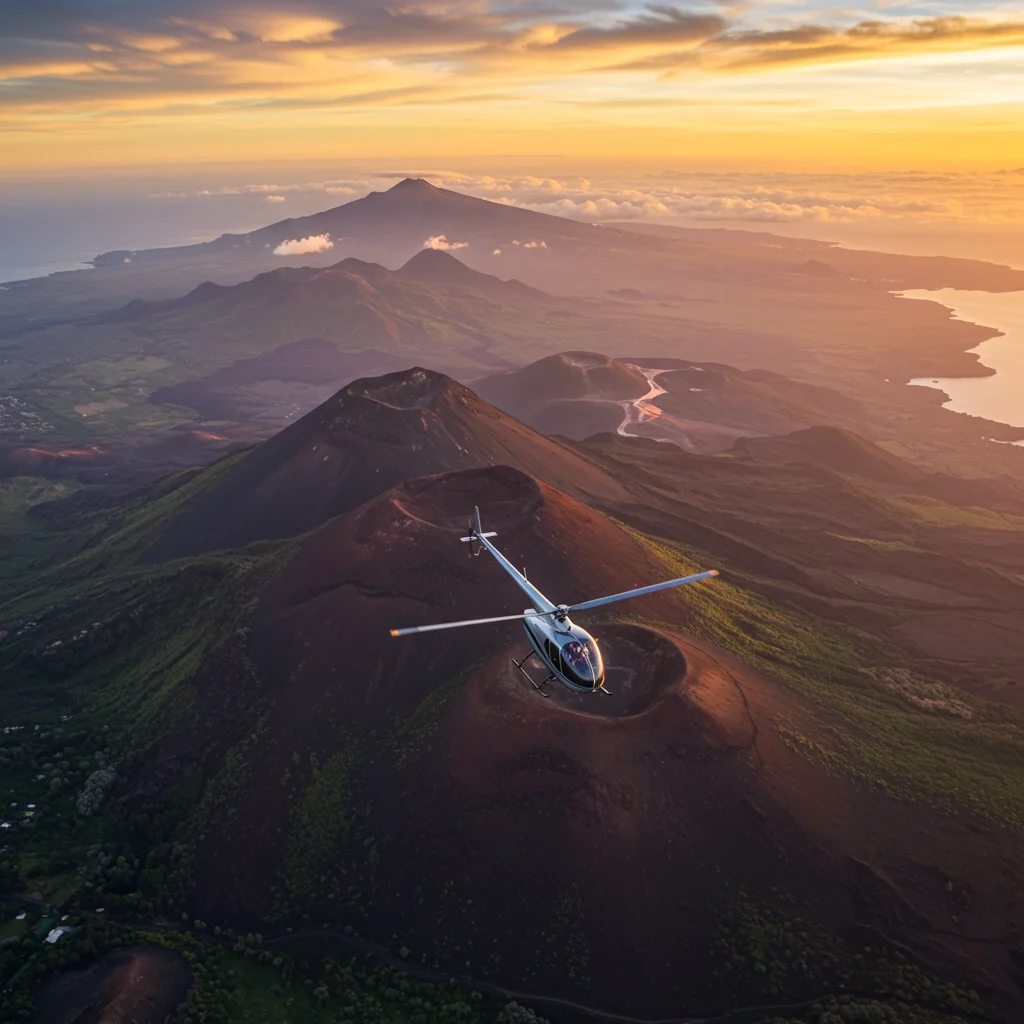
Exclusive vs. Standard Helicopter Tours: What’s the Difference?
Exclusive tours often feature private charters, personalized itineraries, and extended time at the landing site. These tours are ideal for couples, families, or those celebrating special occasions.
Standard tours, while still offering exceptional experiences, typically operate with small groups and follow structured routes and schedules. Both options provide breathtaking views and expert guidance, but exclusivity allows for a more tailored experience.
Private Charter Options
Private charters offer maximum flexibility, allowing us to customize flight paths, choose specific landing sites, and enjoy privacy throughout the journey. These tours are perfect for intimate groups or those desiring a truly personalized adventure.
Special requests, such as celebratory beverages or extended ground time, can often be accommodated by the operator.
Group Tour Options
Group tours are a popular and cost-effective way to experience the Big Island’s volcanic wonders. These tours foster a social atmosphere, making it easy to share the excitement and discoveries with fellow travelers.
Group sizes are kept small to maintain comfort and ensure that everyone enjoys excellent window views and attentive service.
Popular Volcanoes Visited on the Tours
Most helicopter volcano landing tours focus on the island’s most iconic and active volcanic sites, each offering distinct features and stories.
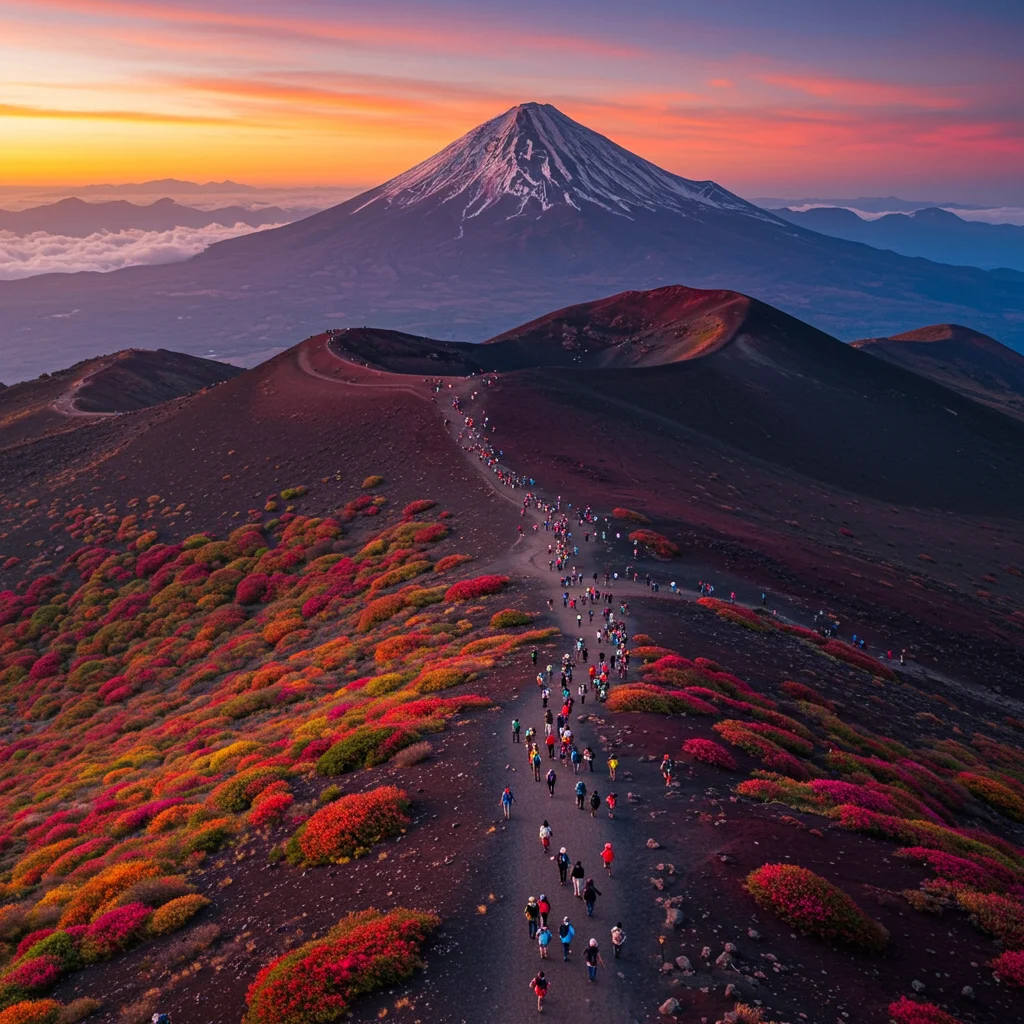
Kīlauea Volcano
Kīlauea is one of the world’s most active volcanoes, continuously shaping the landscape with its eruptions. From the air, we can see the vast summit caldera, steam vents, and—if conditions permit—glowing lava within the crater.
Landing near Kīlauea provides a firsthand look at fresh lava flows and the subtle beauty of new land in the making.
Mauna Loa Volcano
Mauna Loa, the planet’s largest volcano by volume, dominates the southern horizon. Its massive shield stretches for miles, with intricate patterns of ancient and recent lava flows visible from above.
Helicopter tours often circle the summit before descending to a safe landing zone, where guides explain the volcano’s significance and ongoing monitoring efforts.
Other Notable Volcanic Sites
Some tours include flyovers or landings at lesser-known sites such as Pu‘u ‘Ō‘ō, Mauna Kea’s cinder cones, or the dramatic coastline where lava once met the sea. Each site offers its own visual and geological surprises.
For those interested in seeing a wider variety of volcanic and natural attractions, our review of Hilo shore excursions: volcanoes and Rainbow Falls outlines additional options.
Helicopter Tour Routes and Itineraries
Tour routes are carefully planned to highlight the most breathtaking and significant volcanic features, balancing safety with the best possible views.
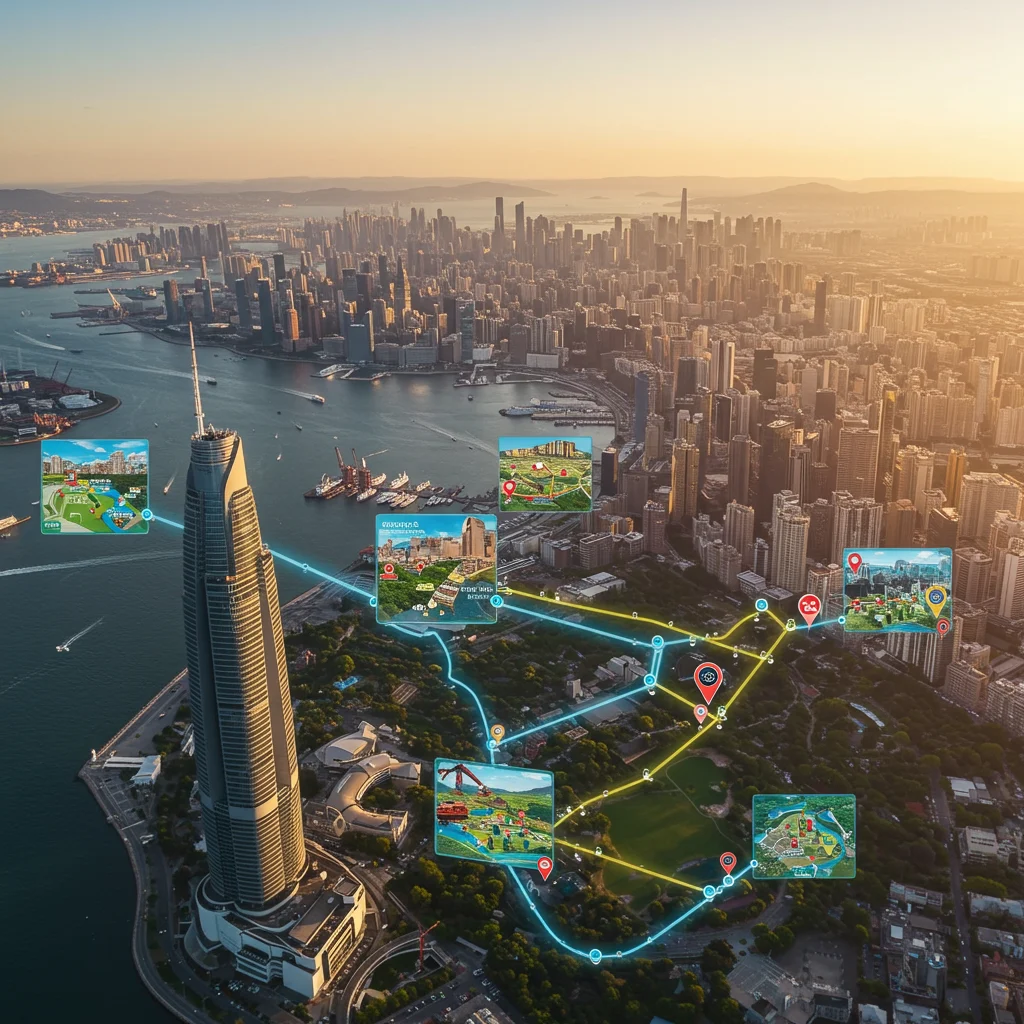
Typical Flight Paths
Most tours depart from Hilo or Kona, tracing a path over lush valleys, active craters, and black lava deserts. Routes often include passes over Kīlauea’s summit, Mauna Loa’s slopes, and the dramatic coastline, with the exact itinerary tailored to current volcanic activity and weather.
Some operators offer unique routes that incorporate waterfalls, remote beaches, or rainforest canopies for added variety.
Duration of Volcano Landing Tours
Tour durations vary, with most lasting between 75 and 120 minutes, including ground time at the landing site. Extended tours may offer more flight time or longer exploration periods.
Shorter options are available for those with limited schedules, but we recommend allowing extra time to fully appreciate the experience.
What Sights Will You See Along the Way?
Along the route, we may spot braided lava rivers, volcanic craters, steaming vents, and even rare glimpses of active lava flows. The contrast between black volcanic rock and vibrant green foliage creates a striking visual palette.
On clear days, distant views of neighboring islands and the sparkling Pacific add to the sense of adventure and scale.
Highlights of the Volcano Landing Experience
The landing portion of the tour offers several unforgettable moments, from the first step onto volcanic earth to the opportunity to capture the landscape through your lens.
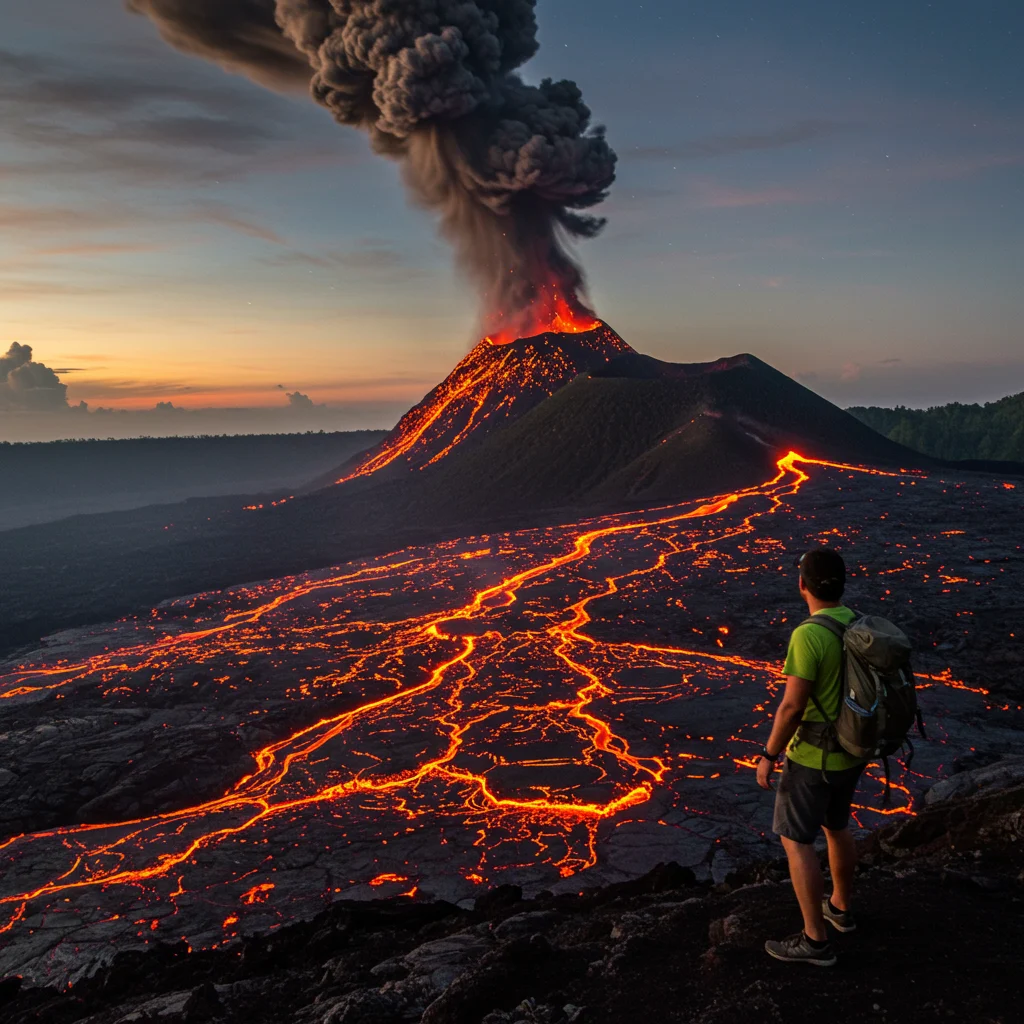
Walking on Volcanic Terrain: What Is It Like?
Setting foot on a volcano is a tactile, sensory-rich experience. The ground may feel warm, textured, and uneven, with the crunch of fresh lava underfoot. We often smell minerals and hear the distant hiss of escaping steam, reinforcing the dynamic nature of the environment.
Guides lead the way, pointing out safe paths and sharing insights about the formation and evolution of the terrain.
Photo Opportunities at the Landing Site
The landing site offers unparalleled photo opportunities. Wide vistas, dramatic cloud formations, and the play of sunlight on rugged lava fields make for stunning images.
For those seeking tips to capture these moments, we recommend reviewing our article on helicopter photography over Oahu, as many principles apply here as well.
Guided Exploration and Interpretation
Expert guides accompany each group, offering in-depth explanations of volcanic features, local ecology, and cultural significance. Their stories bring the landscape to life, helping us appreciate both the scientific and human dimensions of the volcano.
As experts often say:
“Standing on fresh lava, you realize that the earth is alive beneath your feet—constantly creating, destroying, and reshaping the world in ways both beautiful and humbling.”
Safety Measures and Precautions
Safety is the top priority for all reputable helicopter tour operators. Comprehensive protocols, experienced pilots, and well-maintained aircraft contribute to a secure and enjoyable experience.
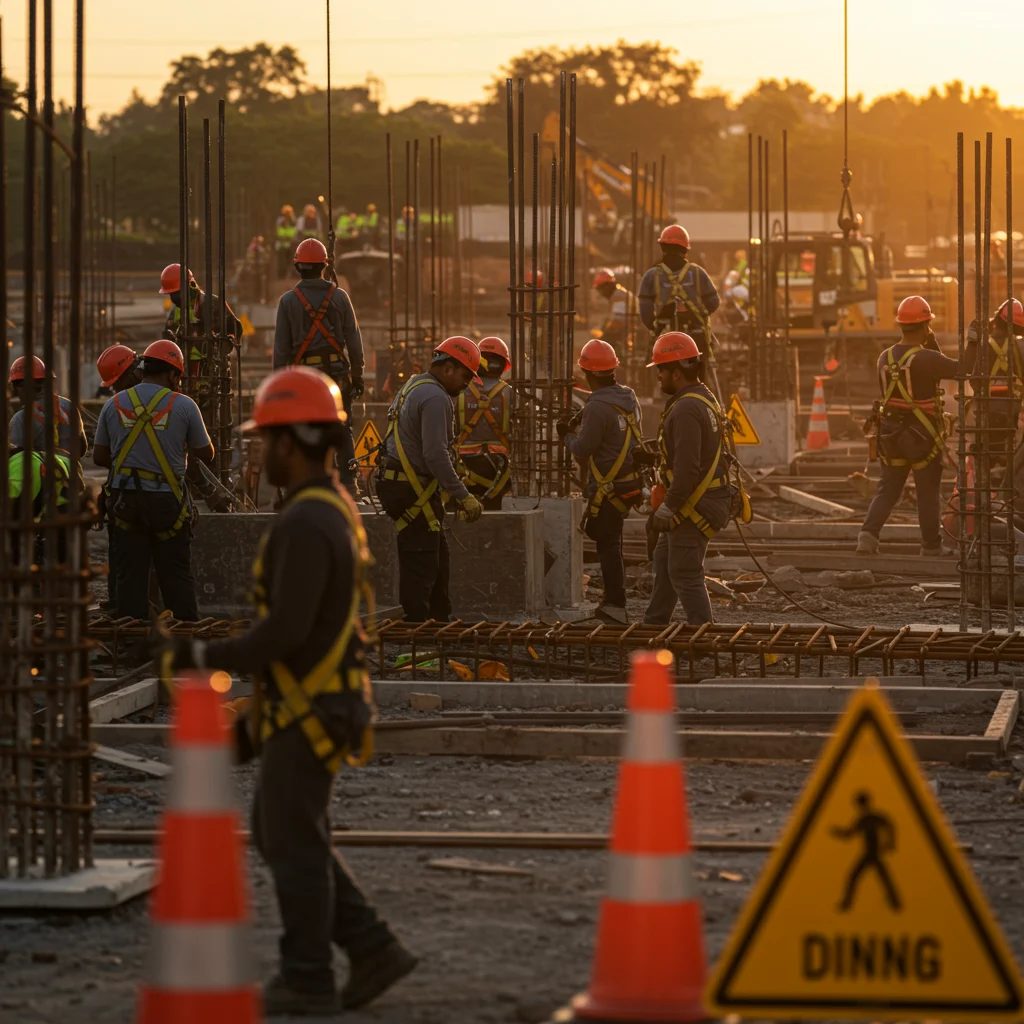
How Safe Are Helicopter Volcano Tours?
Helicopter tours are conducted by highly trained pilots using modern, rigorously inspected aircraft. Operators adhere to strict safety standards, including regular maintenance and thorough pre-flight checks.
Emergency procedures are in place for all contingencies, and tours are canceled or rerouted in the event of adverse conditions.
What Safety Briefings Are Provided?
Prior to boarding, all guests receive a detailed safety briefing covering seatbelt use, emergency exits, communication protocols, and behavior during takeoff, flight, and landing.
Guides also outline specific precautions for walking on volcanic terrain, emphasizing the importance of staying within marked areas.
Weather Considerations and Cancellations
Weather on the Big Island can be unpredictable, with sudden rain showers or shifting winds. Operators monitor conditions closely and may reschedule or cancel flights if safety is compromised.
Clear communication and flexible policies help minimize inconvenience for guests, ensuring that safety always comes first.
Who Can Participate in a Volcano Landing Tour?
Most visitors can participate in volcano landing tours, but there are important considerations regarding age, health, and mobility.
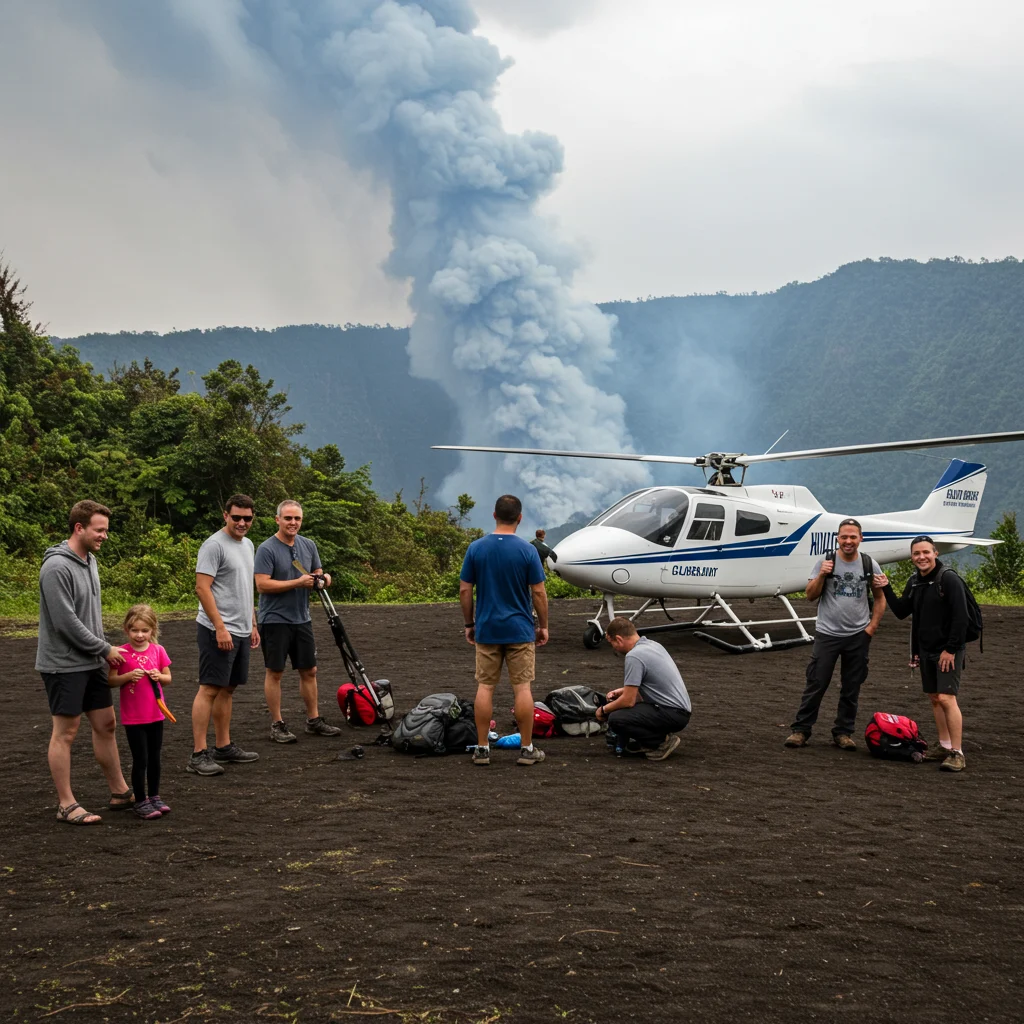
Age and Health Restrictions
Operators typically set minimum age limits, often around seven years old, for safety reasons. Guests with certain medical conditions, such as heart or respiratory issues, should consult their physician before booking.
Pregnant travelers are advised to check policies and seek medical advice prior to participating.
Mobility and Accessibility Considerations
Boarding the helicopter and traversing uneven volcanic terrain requires a moderate level of mobility. Some operators offer assistance or accommodations for guests with limited mobility, but advance notice is essential.
For those with accessibility concerns, discussing options with the tour provider before booking is recommended.
Is the Tour Suitable for Families?
Many families find helicopter volcano tours to be an unforgettable shared adventure. The excitement of flight, combined with the educational value of exploring a living volcano, appeals to children and adults alike.
Operators strive to create a comfortable, inclusive environment for all ages, with clear safety guidelines and engaging commentary.
Booking Your Exclusive Big Island Helicopter Tour
Selecting the right tour operator is key to a memorable and safe experience. Factors such as reputation, aircraft quality, and guide expertise should all be considered.
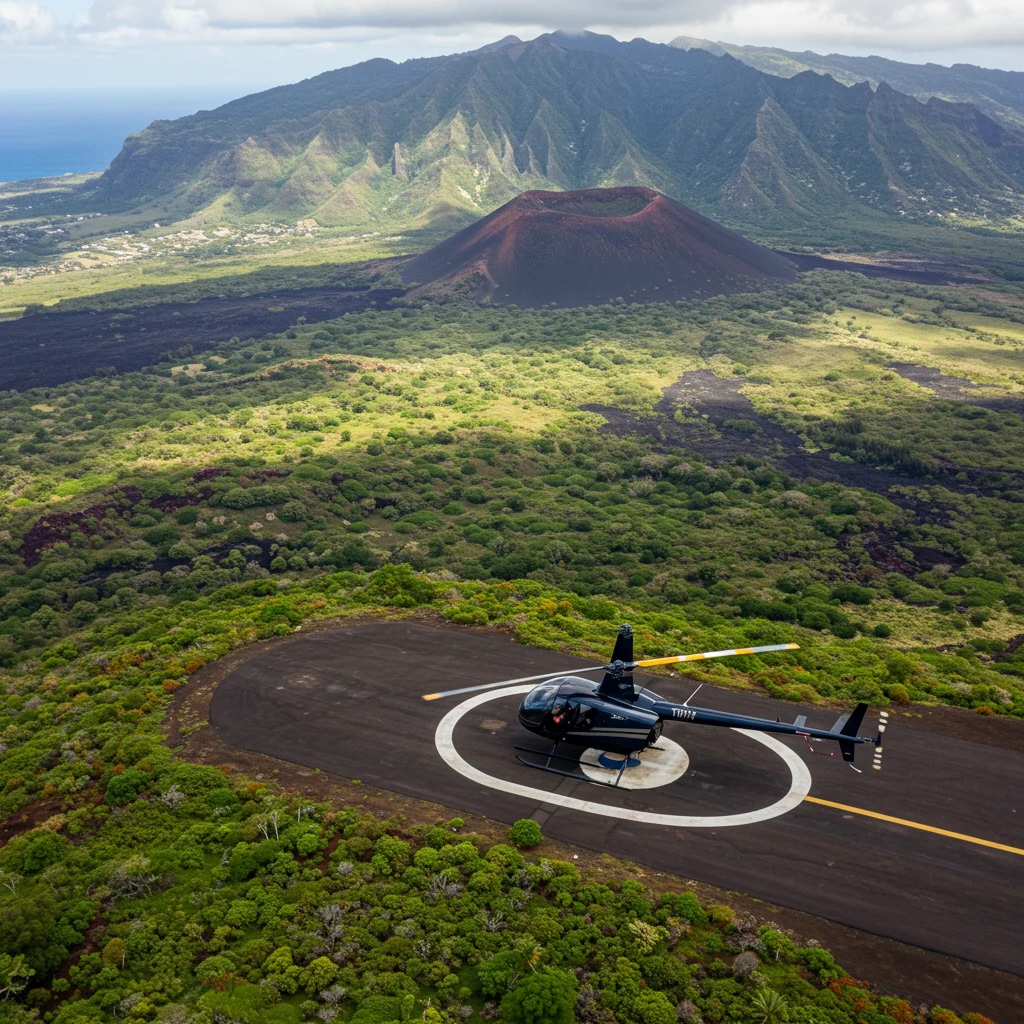
How to Choose the Right Tour Operator
With several companies offering volcano landing tours, it pays to research and compare before making a booking. Reading reviews, checking certifications, and asking questions are all important steps.
What to Look for in a Helicopter Tour Company?
Look for operators with a track record of safety, experienced pilots, and modern, well-maintained helicopters. Positive guest feedback and clear communication are also strong indicators of quality.
Certifications from aviation authorities and membership in professional organizations can provide additional peace of mind.
Questions to Ask Before Booking
Before reserving your spot, consider asking:
- What is the company’s safety record?
- How are seats assigned?
- What is the cancellation policy for weather or other issues?
- Are there any age, weight, or health restrictions?
- What is included in the tour package?
These questions will help ensure your expectations match the reality of the experience.
Pricing and Packages Explained
Tour prices vary depending on duration, exclusivity, and included amenities. Understanding what’s covered in the cost will help you make an informed decision.
What’s Included in the Cost?
Most packages include the helicopter flight, expert commentary, landing fees, and guided exploration. Some tours may offer beverages, commemorative photos, or transportation to and from the heliport.
Be sure to confirm all inclusions prior to booking to avoid surprises on the day of your tour.
Are There Any Hidden Fees?
Reputable operators are transparent about pricing, but it’s wise to double-check for any additional charges, such as fuel surcharges or taxes. Knowing the full cost upfront helps you budget and prevents last-minute disappointments.
Best Times of Year for Volcano Landing Tours
Timing can significantly affect your experience, especially when it comes to weather and volcanic activity.
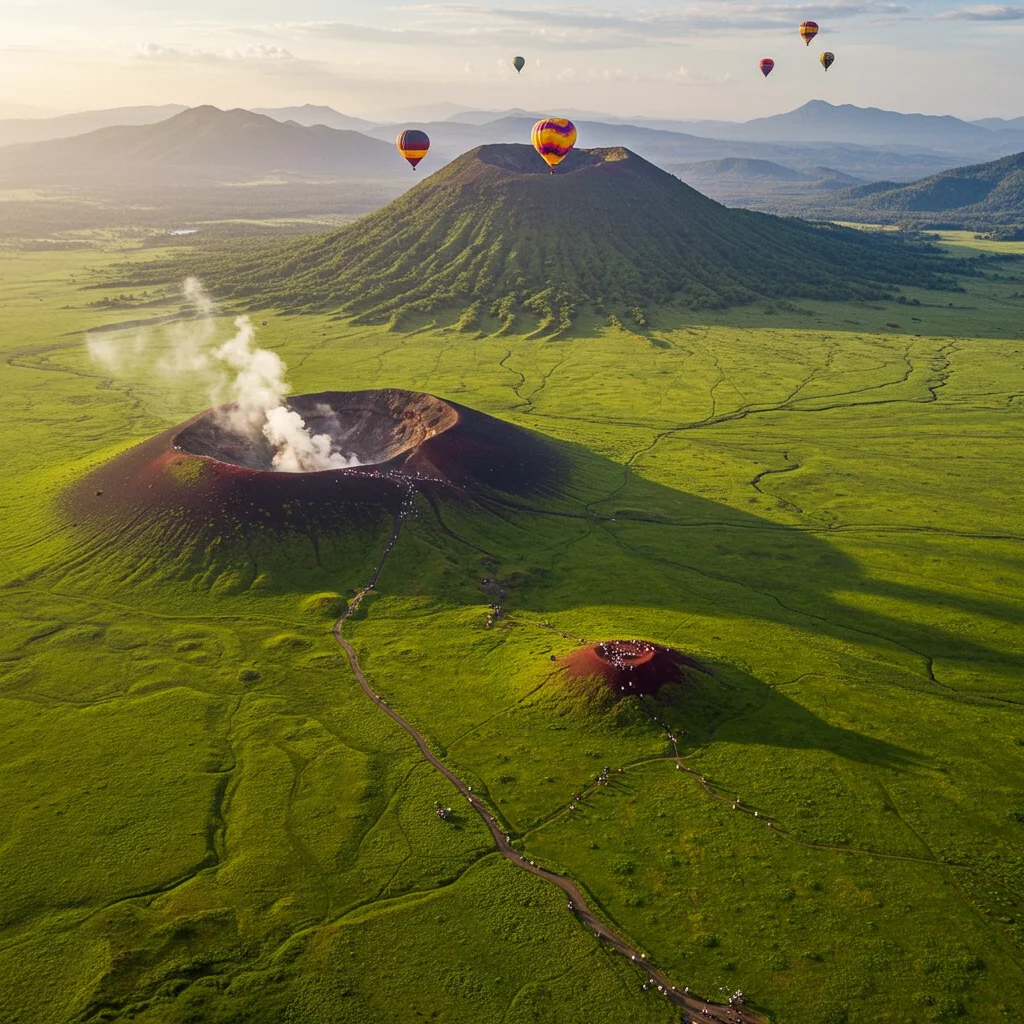
When Is the Volcano Most Active?
Kīlauea’s activity levels fluctuate, with periods of dramatic eruptions and quieter phases. While it’s impossible to guarantee visible lava, operators monitor conditions and adjust itineraries to showcase the most impressive features at any given time.
Staying informed about current volcanic activity can help you plan your trip for optimal viewing opportunities.
If you’re interested in comparing volcanic excursions on other islands, our overview of Hilo from Oahu helicopter volcano excursions provides useful insights.
Weather and Seasonal Considerations
The Big Island enjoys a tropical climate, but conditions can change rapidly, especially at higher elevations. Winter months may bring increased rainfall, while summer offers more predictable weather but higher visitor numbers.
Booking early in the day often provides the clearest skies and smoothest flights.
Preparing for Your Volcano Landing Adventure
A little preparation goes a long way toward ensuring a comfortable and memorable tour.
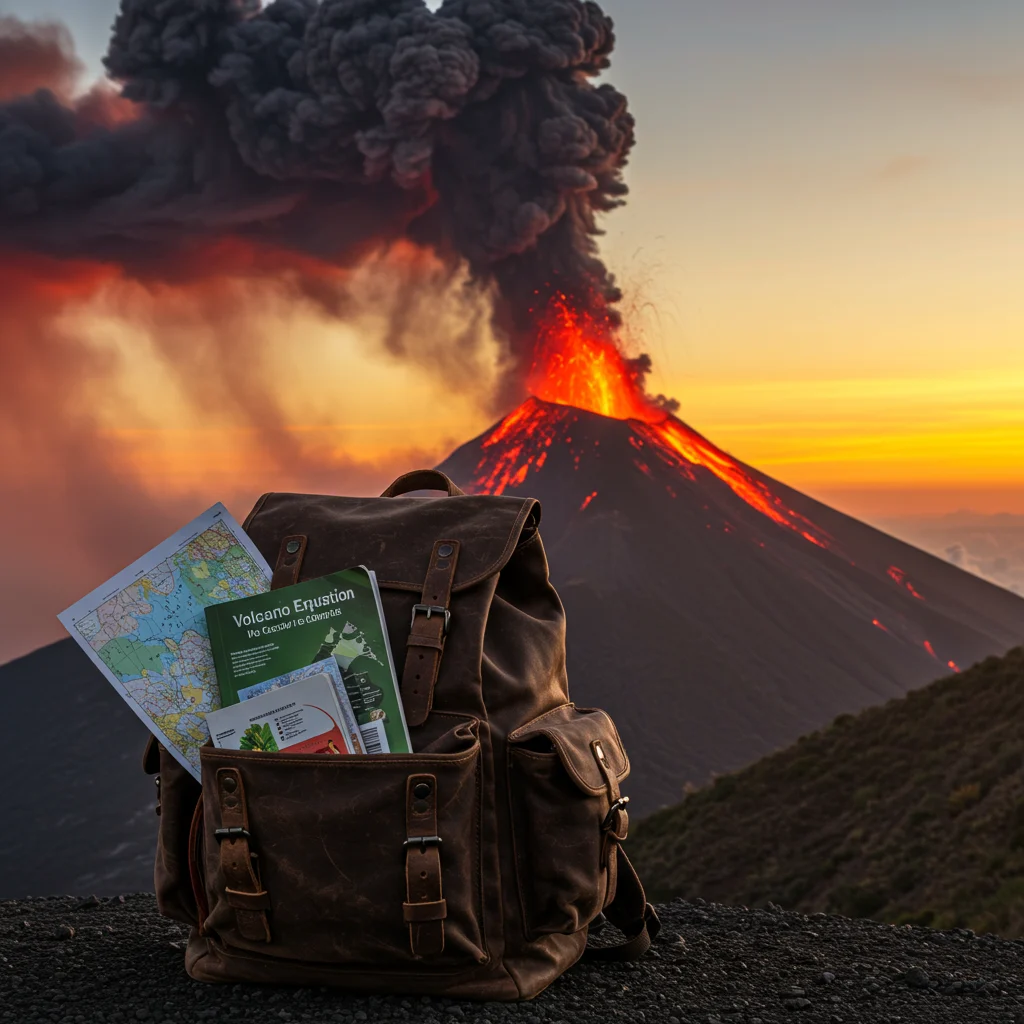
What Should You Wear and Bring?
Dress in comfortable, layered clothing, as temperatures can vary between the heliport, in flight, and at the landing site. Closed-toe shoes with sturdy soles are essential for walking on uneven volcanic ground.
Sunglasses, sunscreen, and a light jacket are recommended. Most operators provide headsets and safety gear as needed.
Camera and Photography Tips
Bring a camera or smartphone with ample storage and a fully charged battery. Polarizing filters can reduce glare in aerial photos, while wide-angle lenses are ideal for capturing sweeping vistas.
Be ready to shoot quickly, as lighting and scenery change rapidly during flight and at the landing site.
Health and Safety Preparations
If you’re prone to motion sickness, consider taking appropriate medication beforehand. Stay hydrated, and inform staff of any medical concerns prior to departure.
Listen carefully to all safety instructions and follow your guide’s directions at all times.
What Is the Check-In Process Like?
Arrive at the heliport at least 30 minutes before your scheduled flight. Check-in involves verifying identification, completing waivers, and receiving a safety briefing. Staff will answer any last-minute questions and assist with boarding.
Getting to the Helicopter Departure Point
Convenient access to the heliport is an important part of planning your tour day.
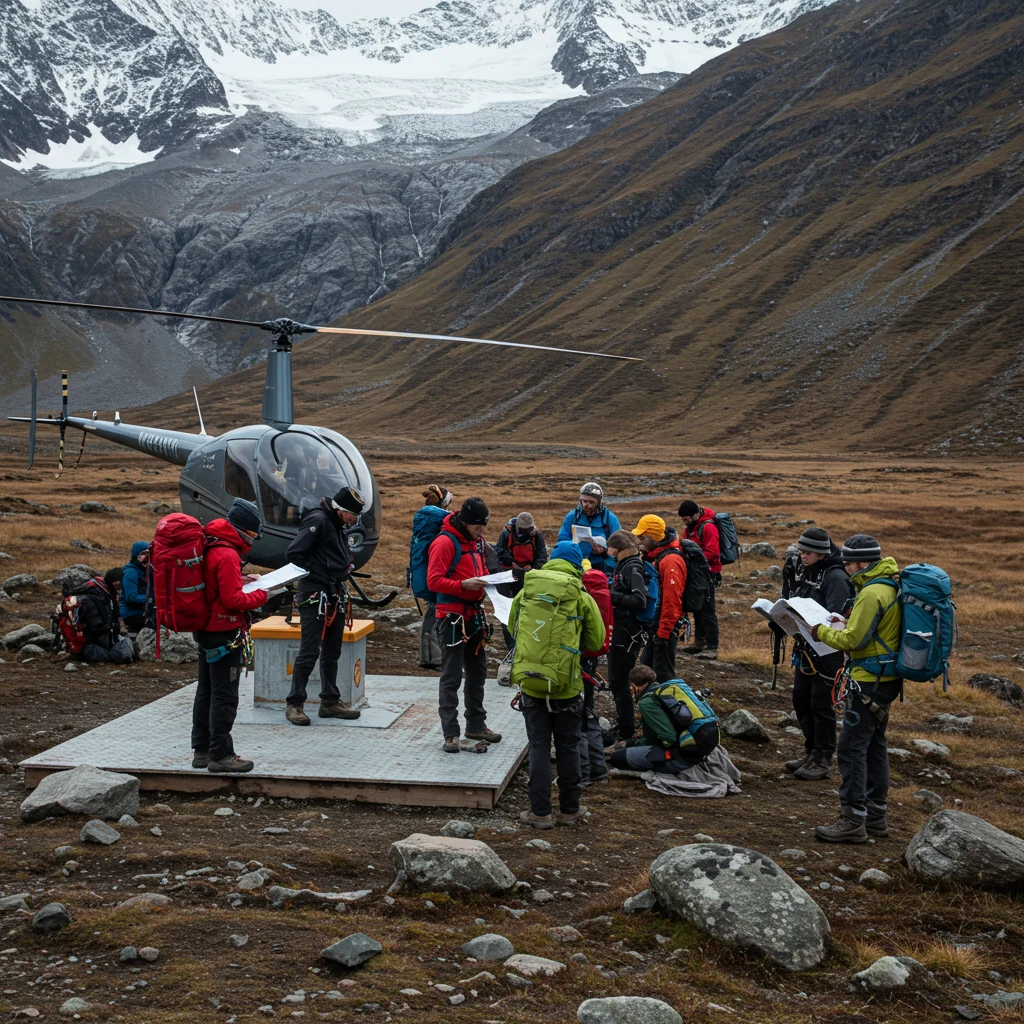
Transportation Options to the Heliport
Most heliports are located near Hilo or Kona. Transportation options include rental cars, taxis, ride-sharing services, and, in some cases, shuttle transfers arranged by the tour operator.
Confirm the exact location and best route ahead of time to avoid delays.
Parking and Accessibility
Ample parking is typically available at heliport facilities, with designated spaces for guests with disabilities. Check with the operator for specific accessibility features if needed.
What to Expect During Check-In
The check-in process is efficient and friendly, with staff on hand to guide you through each step. Luggage and large bags are usually not permitted on board, so plan accordingly.
Onboard Experience: Inside the Helicopter
The in-flight experience is designed for comfort, safety, and maximum visibility, making every moment in the air memorable.
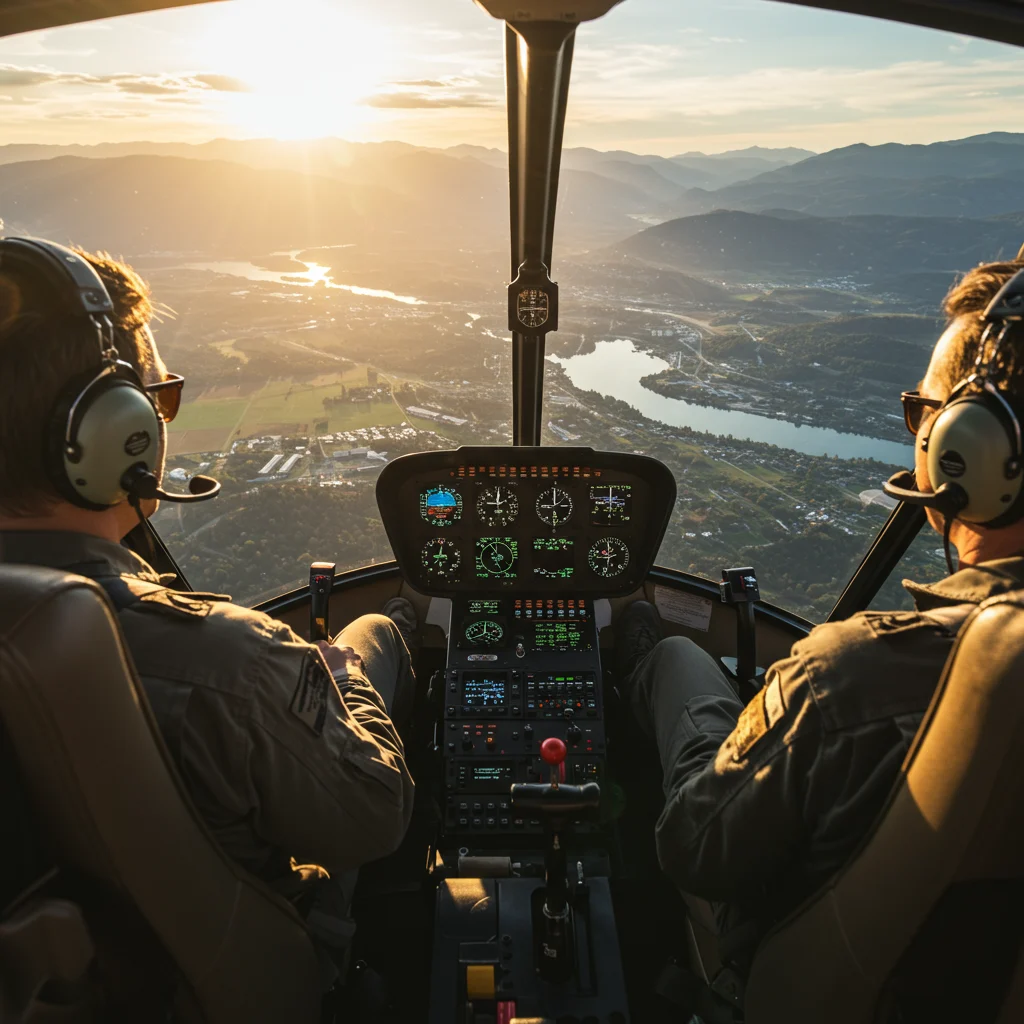
Seating Arrangements and Window Views
Seating is assigned based on weight distribution to ensure flight stability. Every passenger enjoys an excellent view, thanks to large windows and thoughtful aircraft design.
Photography and sightseeing are equally rewarding from any seat.
In-Flight Commentary and Guide Insights
Pilots and guides provide informative, engaging commentary throughout the flight. Topics range from geology and history to local culture and wildlife, delivered through noise-canceling headsets for clear communication.
Can You Communicate with the Pilot?
Yes, passengers can interact with the pilot via intercom, asking questions or requesting clarification about sights along the route. This interactive element adds a personal touch to the journey.
Volcano Science: What Will You Learn?
A helicopter volcano tour offers a fascinating lesson in earth science, revealing the processes that shape our planet in real time.
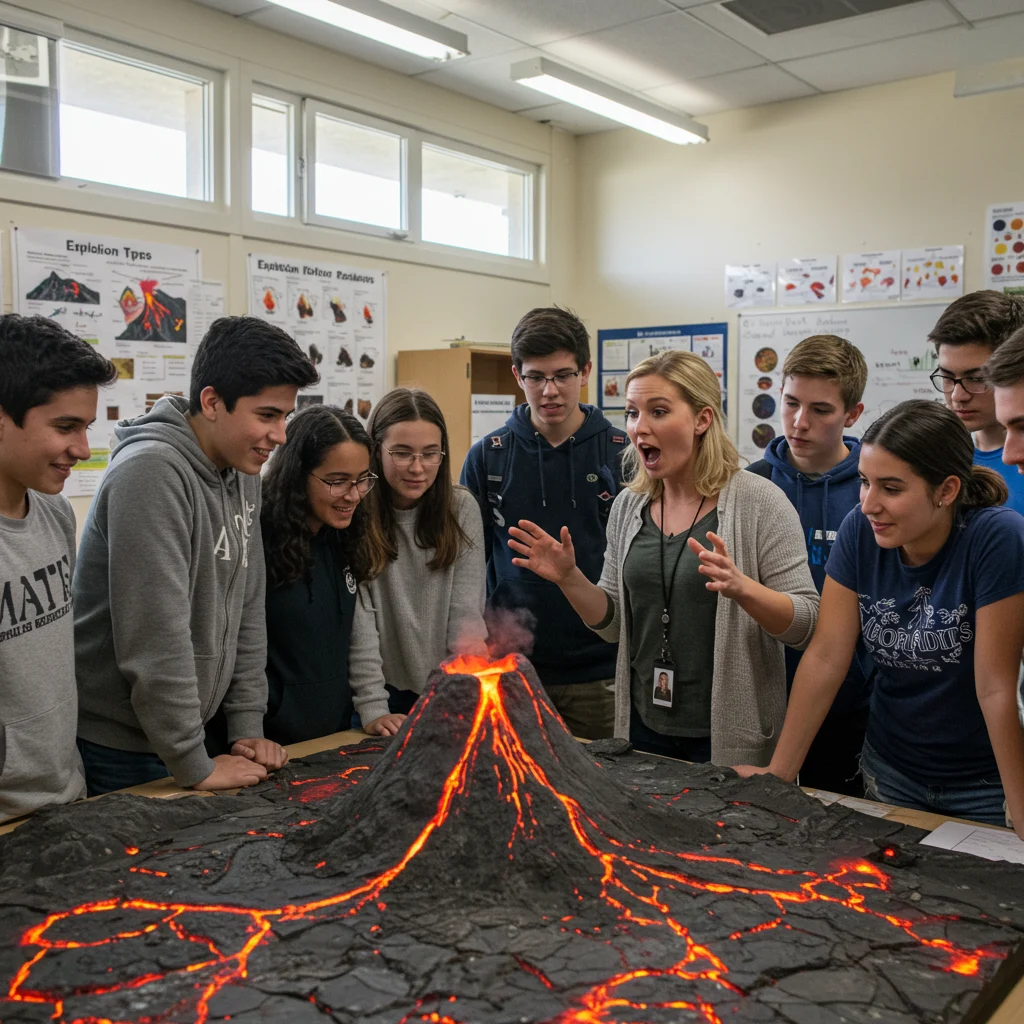
Geological Features Observed from the Air
From above, we can identify craters, cinder cones, lava tubes, and rift zones. The aerial view highlights the scale and interconnectedness of geological features, providing a deeper appreciation for the forces at work.
Eruption History and Recent Activity
Guides share stories of past eruptions, recent activity, and the ongoing monitoring efforts that keep communities safe. Visual evidence, such as fresh lava flows and steaming vents, brings these stories to life.
Unique Flora and Fauna in Volcanic Areas
Despite the harsh conditions, volcanic landscapes support a surprising diversity of life. We may spot pioneering plants, native birds, and even rare insects adapted to the unique environment.
Cultural Significance of Hawaii’s Volcanoes
Hawaii’s volcanoes are more than geological marvels—they are sacred sites woven into the fabric of local culture and mythology.
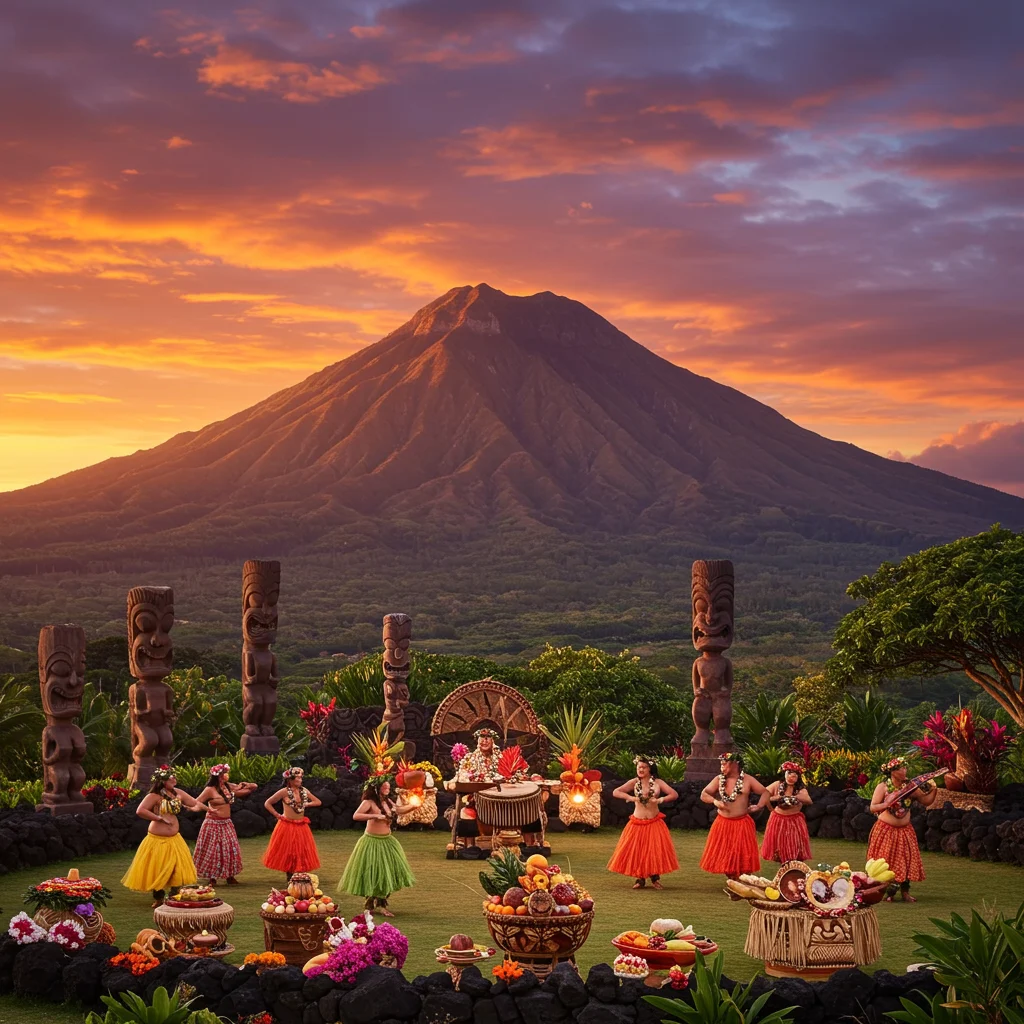
Volcanoes in Hawaiian Mythology
Ancient legends recount the power and unpredictability of the volcanoes, often depicting them as living beings with their own personalities and motives.
These stories continue to shape local perspectives and practices today.
The Role of Pele, the Volcano Goddess
Pele, revered as the goddess of fire and volcanoes, is central to Hawaiian mythology. Her presence is felt in every eruption, and her stories are shared by guides to deepen our understanding of the land’s spiritual significance.
Respectful Behavior and Local Customs
Visitors are encouraged to treat volcanic sites with respect—remaining on marked paths, avoiding removal of rocks, and honoring local customs. Learning about these traditions adds meaning to the experience and fosters a sense of connection with the island.
Frequently Asked Questions About Volcano Landing Tours
Travelers often have questions about what to expect and how to make the most of their tour.
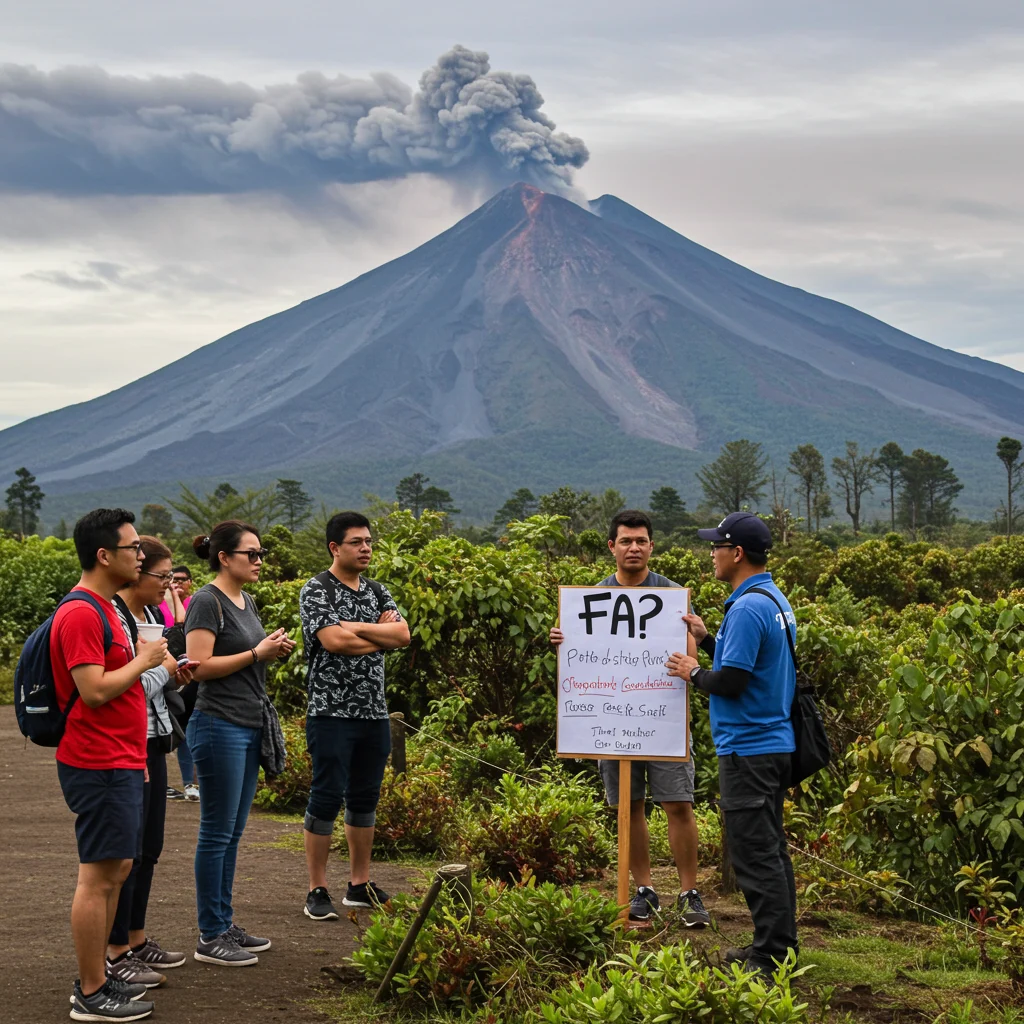
Can You See Lava During the Tour?
While active lava flows are not guaranteed, operators monitor volcanic activity closely and adjust routes to maximize viewing opportunities when possible. The chance to witness glowing lava is a highlight for many guests, but the landscape is always impressive regardless of current activity.
What Happens if the Volcano Is Not Erupting?
Even during dormant periods, the tour offers dramatic scenery, fascinating geological features, and the rare chance to walk on recently formed earth. Guides enrich the experience with stories, science, and cultural insights.
Are Helicopter Tours Environmentally Friendly?
Operators strive to minimize their environmental impact through efficient flight planning, fuel management, and adherence to protected area regulations. Group tours help reduce per-person emissions compared to individual vehicle excursions.
For a comparison with other iconic helicopter experiences, see how the Grand Canyon helicopter landing adventure balances excitement and conservation.
Comparing Helicopter Tours to Other Volcano Experiences
Helicopter volcano tours offer a unique perspective, but there are other ways to experience Hawaii’s volcanic landscapes.
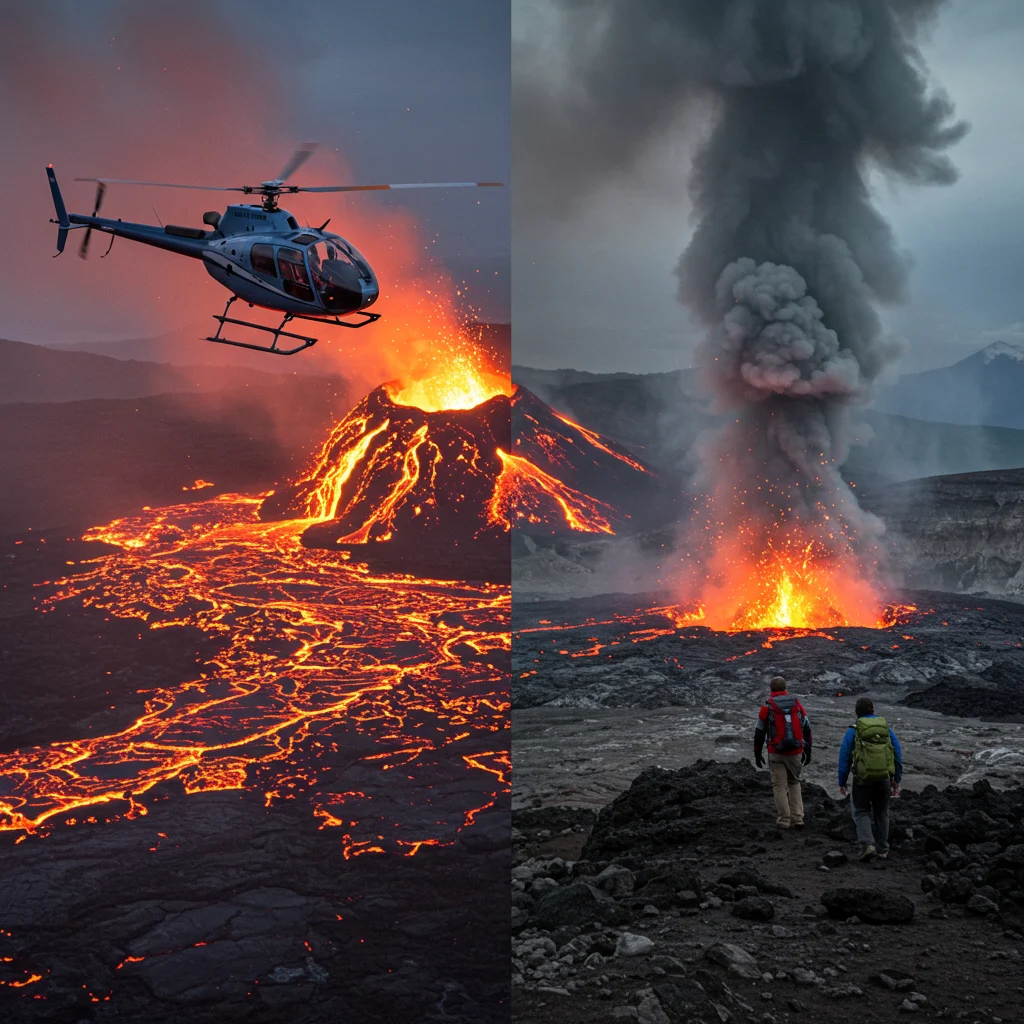
Helicopter vs. Hiking Tours: Which Is Better?
Hiking provides a slower, ground-level view, allowing for close observation of geological details and native plants. Helicopter tours, on the other hand, reveal the vastness of the terrain and access remote locations inaccessible by foot.
Many visitors choose to combine both for a well-rounded adventure.
Boat Tours vs. Helicopter Tours
Boat tours offer dramatic views of the coastline and, during certain eruptions, the spectacle of lava meeting the sea. However, helicopter tours provide greater access, flexibility, and a bird’s-eye view of the entire volcanic system.
Combining Helicopter Tours with Other Activities
A helicopter volcano landing tour can easily be part of a larger itinerary, allowing us to experience more of what the Big Island has to offer.
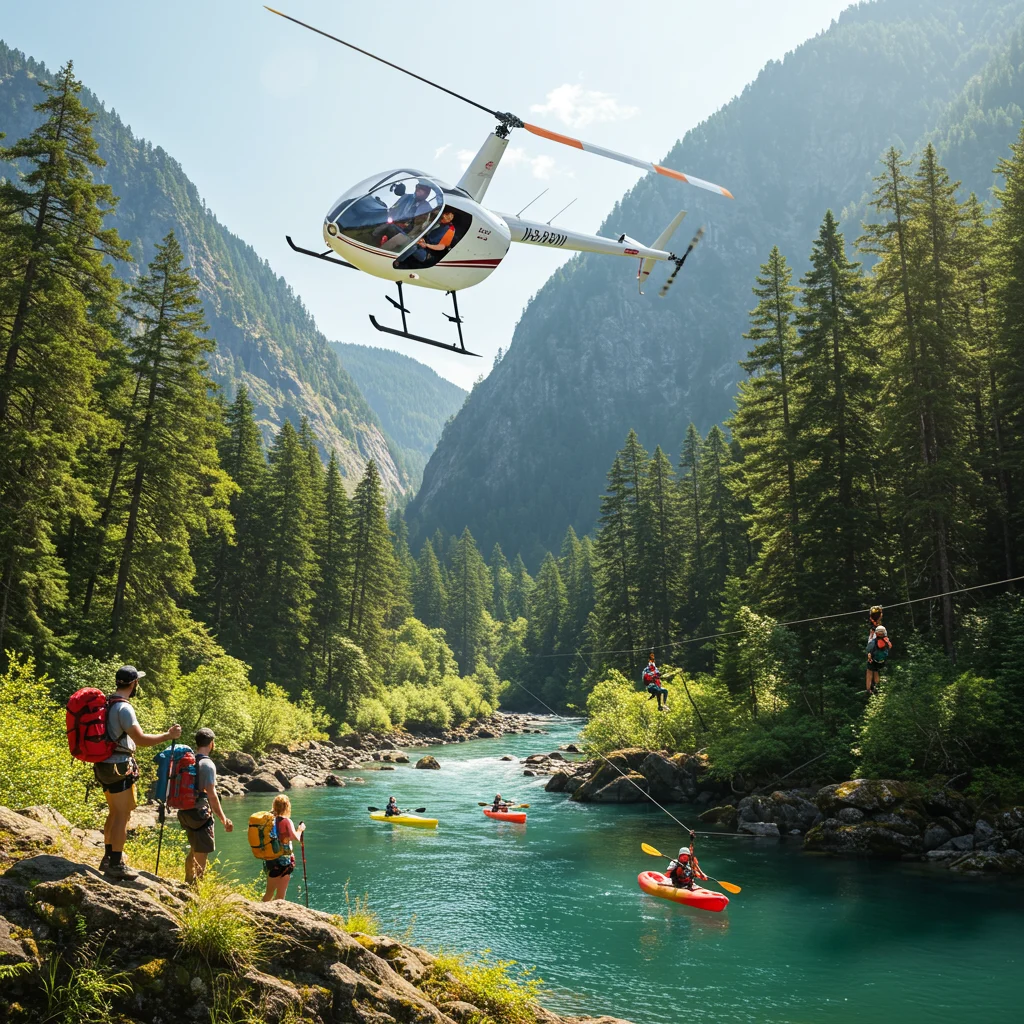
Recommended Add-On Experiences
Popular add-ons include guided hikes, visits to botanical gardens, or snorkeling excursions. Many tour companies offer combination packages or can recommend trusted local partners.
Nearby Attractions to Visit After Your Tour
After your flight, consider exploring nearby sites such as Hawai‘i Volcanoes National Park, Rainbow Falls, or the historic town of Hilo. Each offers a different perspective on the island’s natural and cultural heritage.
Tips for Making the Most of Your Volcano Landing Tour
A few simple strategies can help us get the most from this once-in-a-lifetime experience.
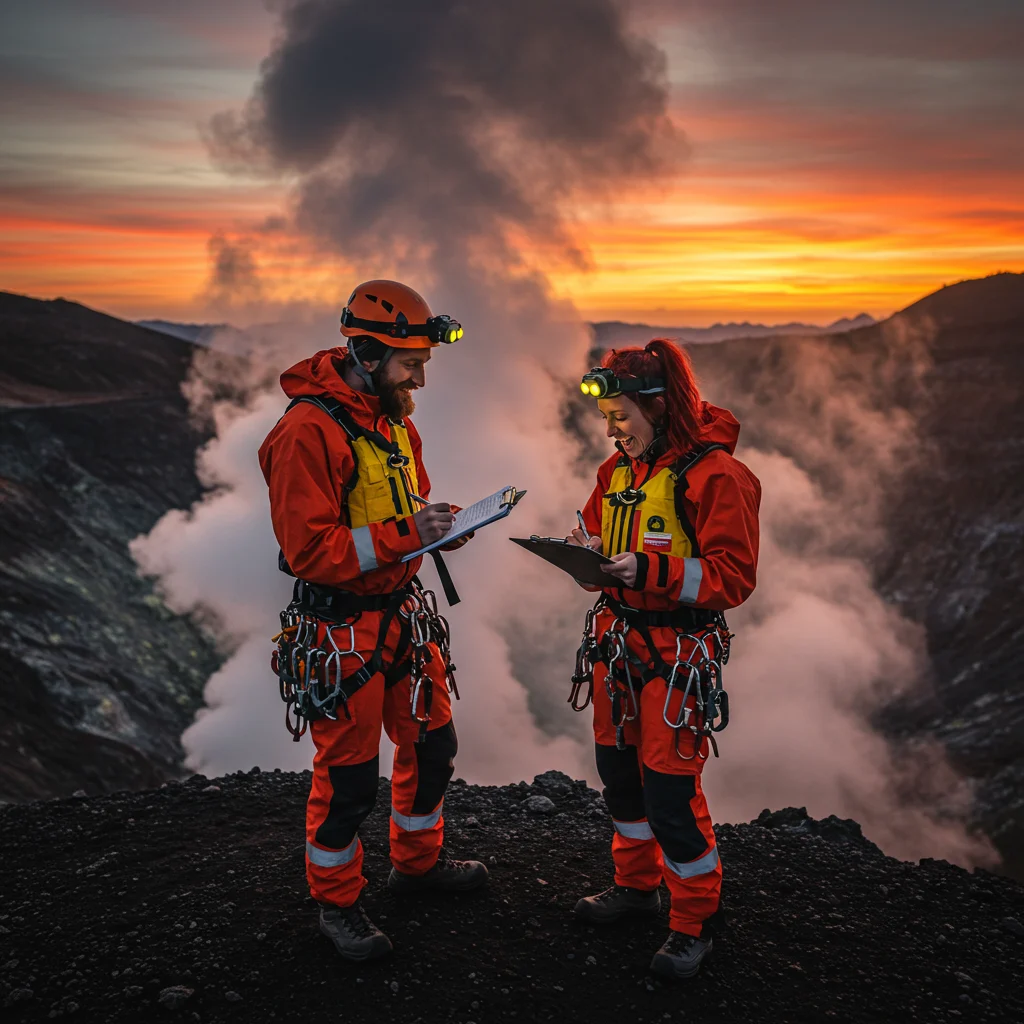
How to Get the Best Photos and Videos
Clean your camera lens before boarding, use burst mode for action shots, and focus on capturing both wide landscapes and close-up details. Experiment with different angles and lighting to showcase the dramatic contrasts of the volcanic environment.
Staying Comfortable During the Flight
Wear light, breathable clothing, and secure loose items before takeoff. If you’re sensitive to motion, choose a seat near the center of the cabin and let the staff know in advance.
How to Maximize Your Learning Experience
Come prepared with questions for your guide, and listen closely to their stories and explanations. Taking notes or recording brief audio clips can help preserve the information for later reflection.
Reviews and Testimonials from Past Guests
Feedback from previous visitors provides valuable insights into what makes these tours so memorable.

What Do Previous Visitors Say?
Guests consistently praise the professionalism of pilots, the comfort of the helicopters, and the sheer beauty of the sights viewed from above. Many describe the landing as a highlight, offering a sense of connection to the island’s primal forces.
Common Praise and Critiques
Positive comments often mention the quality of guide commentary, the smoothness of the flight, and the breathtaking photo opportunities. Some guests note that weather-related cancellations can be disappointing, but they appreciate the operator’s commitment to safety.
Sustainability and Responsible Tourism Practices
Sustainable tourism is increasingly important for preserving the fragile environments surrounding Hawaii’s volcanoes.
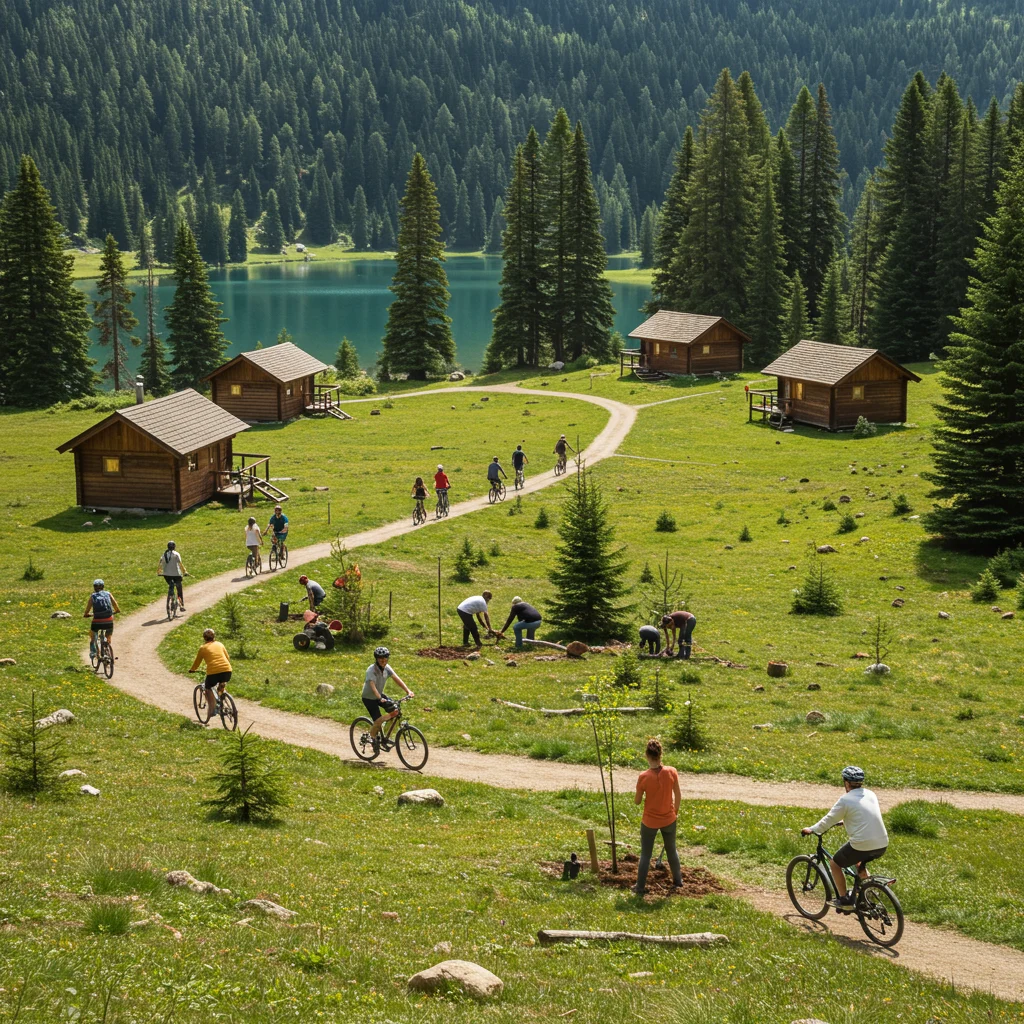
How Tour Operators Protect the Environment
Operators limit the number of landings, follow designated paths, and partner with conservation organizations to support local ecology. Aircraft are maintained for efficiency, and all waste is removed from landing sites.
How Can You Minimize Your Impact?
We can do our part by following all guidelines, respecting marked boundaries, and avoiding the removal of rocks or plants. Supporting operators committed to sustainability helps preserve these landscapes for future generations.
How to Book on Viator
Booking your volcano landing tour is straightforward with Viator, a trusted platform that connects travelers with top-rated activities. To begin, visit Viator and search for “Big Island helicopter volcano landing tour.” You can compare options, read verified reviews, and secure your reservation with ease.

We recommend using Viator to find tours that match your schedule and preferences, as they offer flexible cancellation policies, transparent pricing, and attentive customer support.
Conclusion: Is an Exclusive Big Island Helicopter Volcano Landing Tour Worth It?
An exclusive helicopter volcano landing tour on the Big Island stands as one of Hawaii’s most thrilling and insightful adventures. The combination of aerial views, expert guidance, and the rare opportunity to set foot on a living volcano creates memories that last a lifetime.
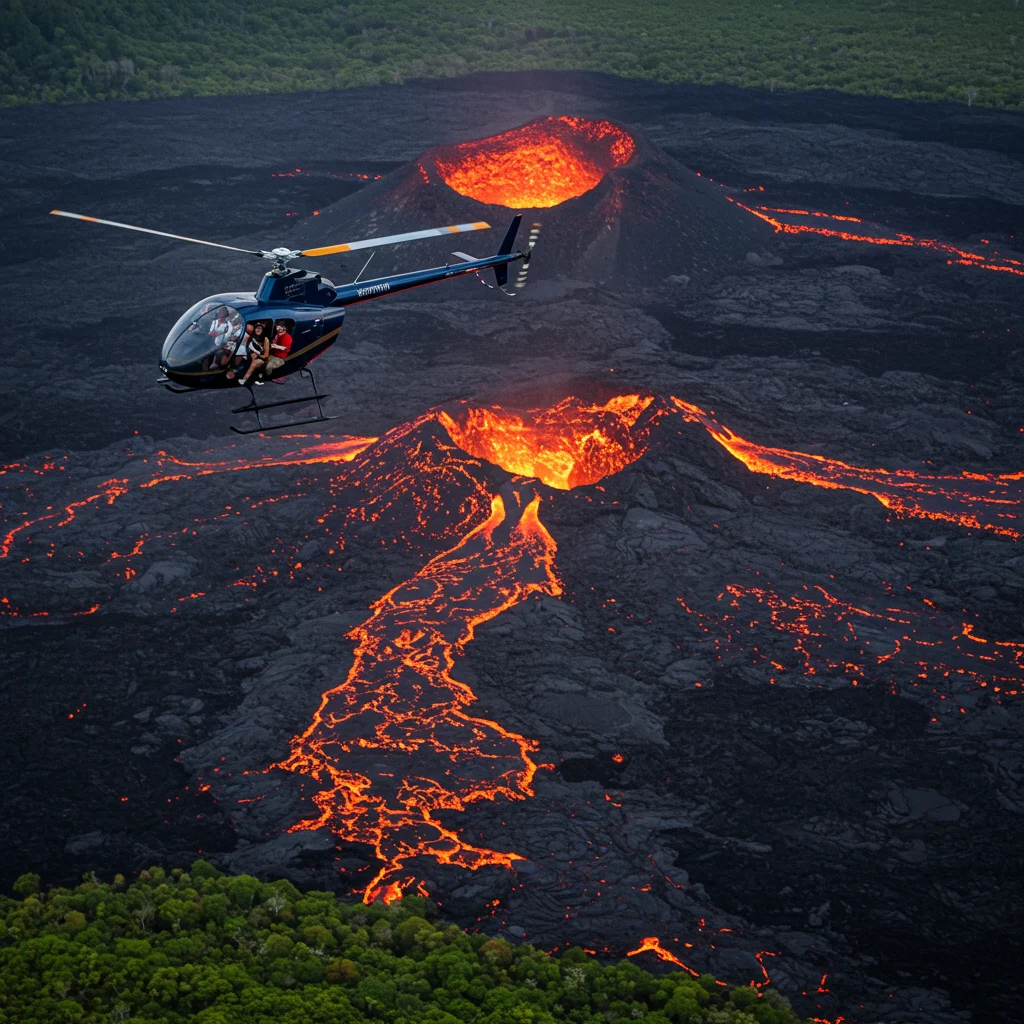
For those who value both excitement and education, this experience delivers on every level. We encourage you to consider booking through trusted partners and to read more about Hawaii’s wonders with Izase at https://izase.com as you plan your dream journey.
“Disclaimer: This information is accurate to the best of our knowledge; however, there may be changes or mistakes. Please verify exact details on the Viator booking page.”

